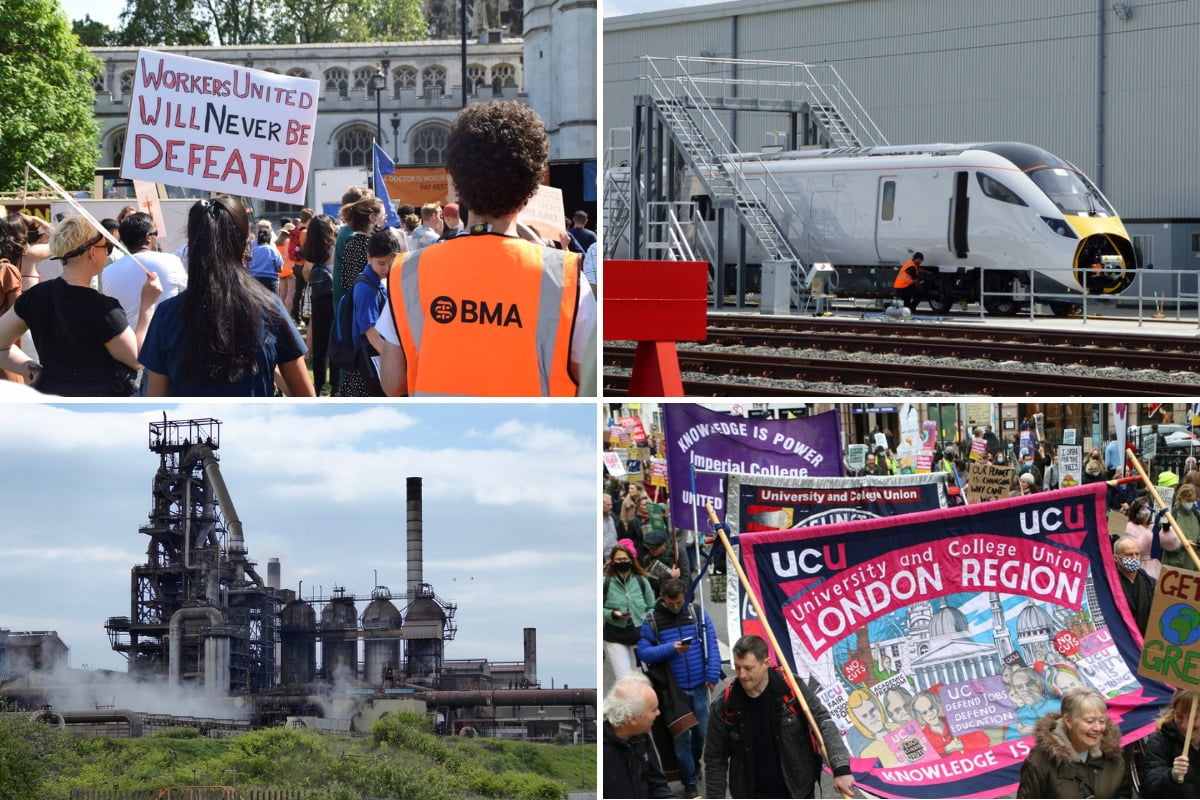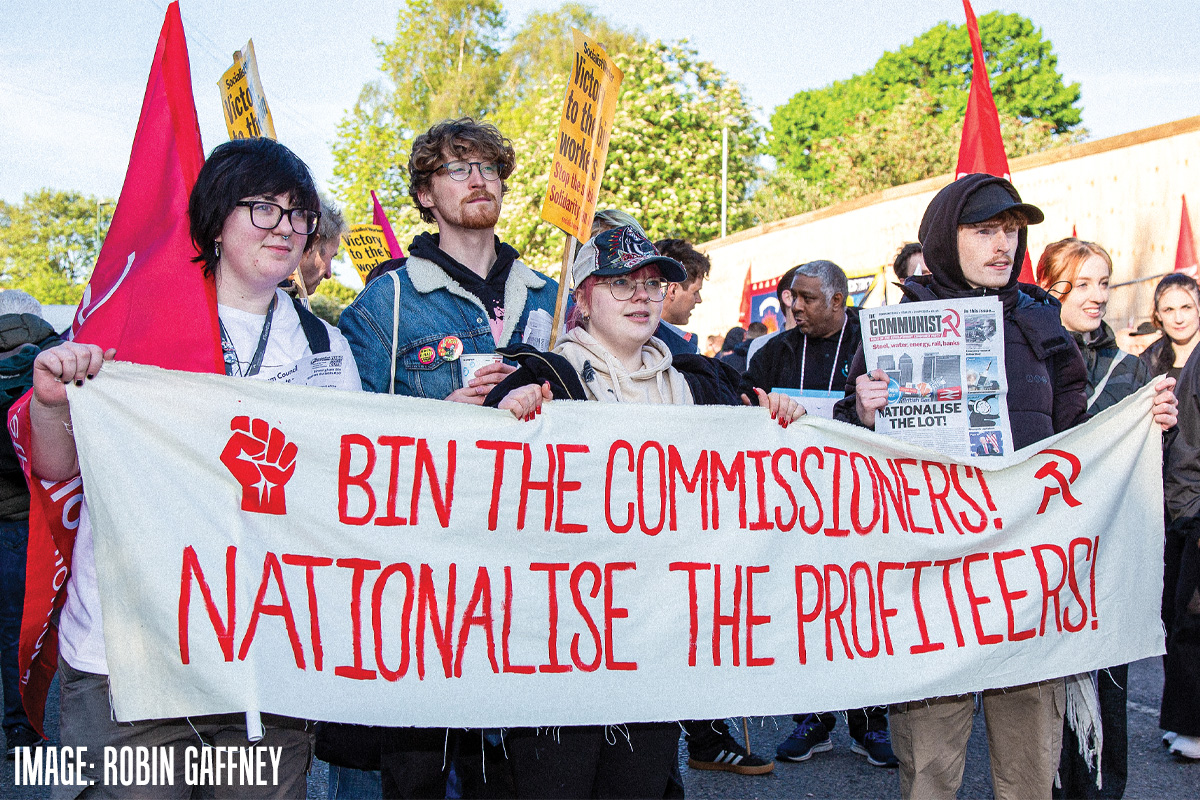Port Talbot: Tata raises the stakes – workers must mobilise!
Maciej Krzymieniecki, Swansea RCP
It has now been six months since Tata announced the closure of Port Talbot’s blast furnaces, threatening the livelihoods of thousands of workers.
After months of inaction, Unite the Union have announced an overtime ban and a go-slow at the plant, starting on 18 June. The other two steel unions, Community and GMB, meanwhile, are still sitting on their hands despite both winning strike mandates.
All of this confirms that the union leaders are banking on a Starmer government to save them, and are dragging their feet on the industrial front accordingly.
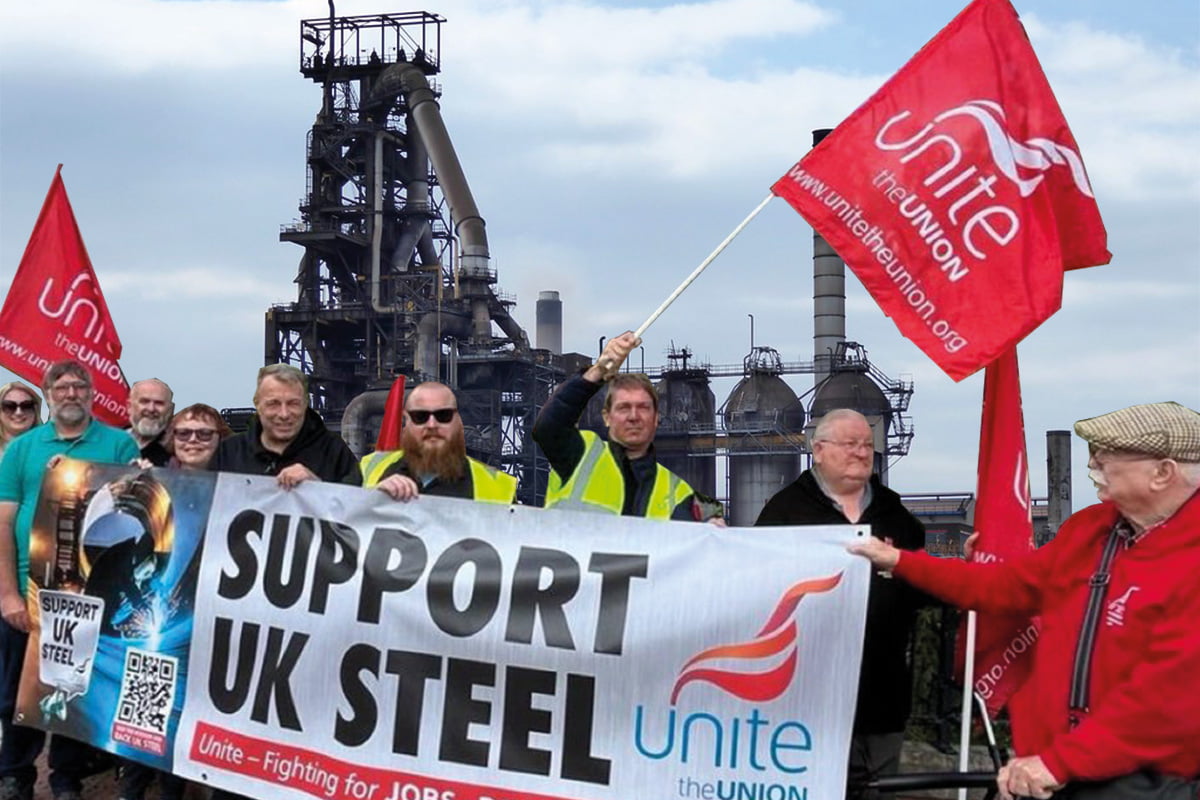
This is criminally naïve at best, given Starmer’s track record. He is for the bosses, not the workers. As Birmingham council’s crisis shows, he’s prepared to abandon entire cities and towns.
We cannot rely on these people to save us. There is no future for the steelworks, so long as it remains in the hands of profiteering vultures.
Tata bosses have already tried to blackmail workers, threatening that their redundancy packages will be taken away if they go on strike. On 31 May, in response to Unite’s work-to-rule notice, they went a step further.
The company has announced the possibility of bringing forward the closures, cutting redundancy payouts, and deploying legal action to override industrial ballots and attack any workers who take strike action.
Enough is enough! Workers can only rely on themselves. Union members must ramp up the pressure on their leaders, and demand immediate coordinated strike action by all three steel unions.
If these leaders continue to drag their feet, then steelworkers will have to take matters into their own hands. Cross-union meetings should be held to organise an occupation, alongside a militant campaign that appeals to the town and the surrounding area for support.
At the end of the day, Tata can’t close what they don’t control!
Hitachi Rail jobs under threat: mobilise the workers!
James Baird, Durham RCP
Workers at the Hitachi Rail site in Newton Aycliffe, County Durham, are being left in the lurch following news that current production contracts are to expire by October, and with no new work in the pipeline.
The threat of unemployment looms for 750 people. Another 1,400 workers will be indirectly impacted.
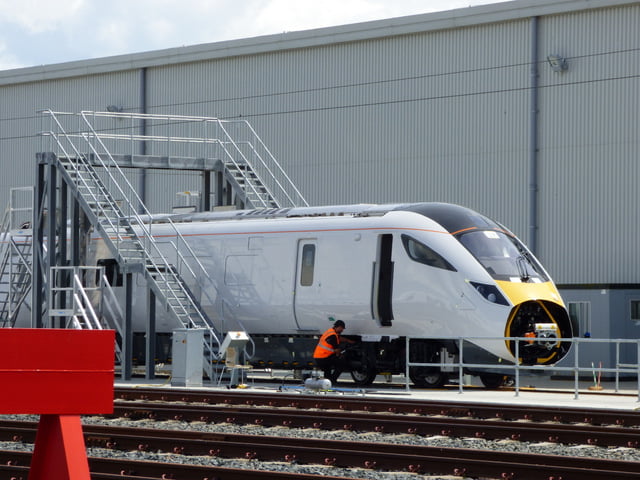
The closure of this site would be another blow to a region that has been left to rot for decades. Workers and youth from across County Durham would be the ones to suffer.
The long-term decline of British industry is more apparent than ever. The capitalists would rather be speculating in the City than investing in meaningful production across the country.
Unite leader Sharon Graham has called on the government to “pull its finger out and tender the extension of the West Coast contract to Hitachi immediately”.
Shadow chancellor Rachel Reeves, meanwhile, has also promised to ‘salvage the wreckage’. Yet it is clear which side she and Starmer’s Labour are on. They will dutifully prioritise the profits of the ruling class over all else.
With industry – such as the Port Talbot steelworks in Wales – being allowed to go to the wall, the stark reality is laid bare.
The time for talk passed long ago. Workers cannot accept such a situation. Union members should demand that their leaders organise a serious fightback to prevent job losses.
This means immediate ballots for strike action – and, if need be, preparing the ground for occupations, by appealing to the wider community.
Only the nationalisation of the factory – under workers’ control, linked to a socialist plan of production – can provide a clear future.
Letter from a BMA Council member: Escalate the action!
In the run-up to the general election, resident (formerly known as junior) doctors will be striking for full-pay restoration.
We have been in dispute for over a year. And yet, despite our members sacrificing energy and pay to go on strike, progress has been limited.
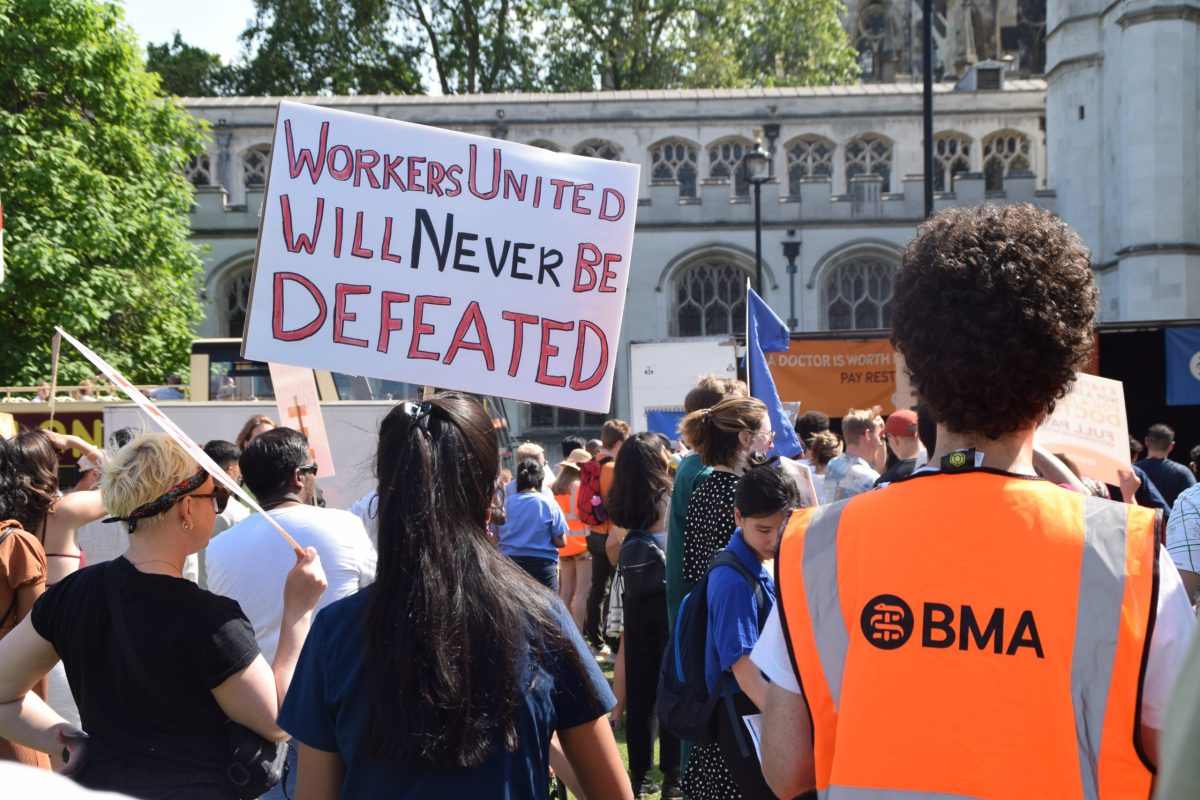
What we need is escalated action. Our nursing colleagues and other healthcare workers received below-inflation pay rises. We must link up our struggles, across a public sector ravaged by austerity and privatisation, to put real pressure on the next government.
We also need to make sure that there is healthy democracy in our union. From encouraging grassroots organising, to demanding transparency at the top: changes need to be made to make sure we’re a fighting union.
The fight for pay is the fight for a well-staffed, well-run NHS. We invite all workers to visit our picket lines, and to speak with striking doctors.
BMA doctors stand in solidarity with encampment movement
A junior doctor in West London
In my workplace, many of my medical colleagues are horrified by the genocide in Gaza. Management has ‘forbidden’ us from speaking about the conflict, however, for fear of offending people.
I recently got word about a Palestine rally taking place at Imperial College, led by our comrades in the RCP.
I contacted several of my closest colleagues, explaining the nature of the rally and the need to build student-worker solidarity.
On this basis, I drafted a statement in solidarity with the rally. I discussed the political content with my colleagues. And, with their approval, I sent it to the Imperial College comrades.
On the day of the rally, I was able to bring a colleague to the rally. With a general lack of speeches, aside from a strong contribution by a leading Imperial College comrade, I decided to read our statement out loud. This was met with a warm reception from the students on campus.
By taking this action, one of my colleagues has already said they want to defy our NHS trust’s censorship, and speak openly about Palestine in the break room.
Becoming a political point-of-reference in the workplace can be more than informal discussions. Joint actions, even in the form of statements, can unite sympathetic colleagues around communist analysis and demands!
UCU conference: Students and staff must unite!
Phil Baker, Loughborough College delegate (personal capacity)
The hot topics at this year’s UCU national congress were undoubtedly Palestine and the recent strikes by UCU staff organised in Unite. The ongoing atrocities in Gaza, alongside the inspiring student encampments, have brought in fresh layers of activists.
On the second day of conference, a staff strike captured the attention of many delegates. Delegates heard countless tales of mistreatment by higher management, alongside allegations of racism and breaches of dispute policies. Consequently, there was an overwhelming vote to get motions in support of the strike put back onto the agenda.
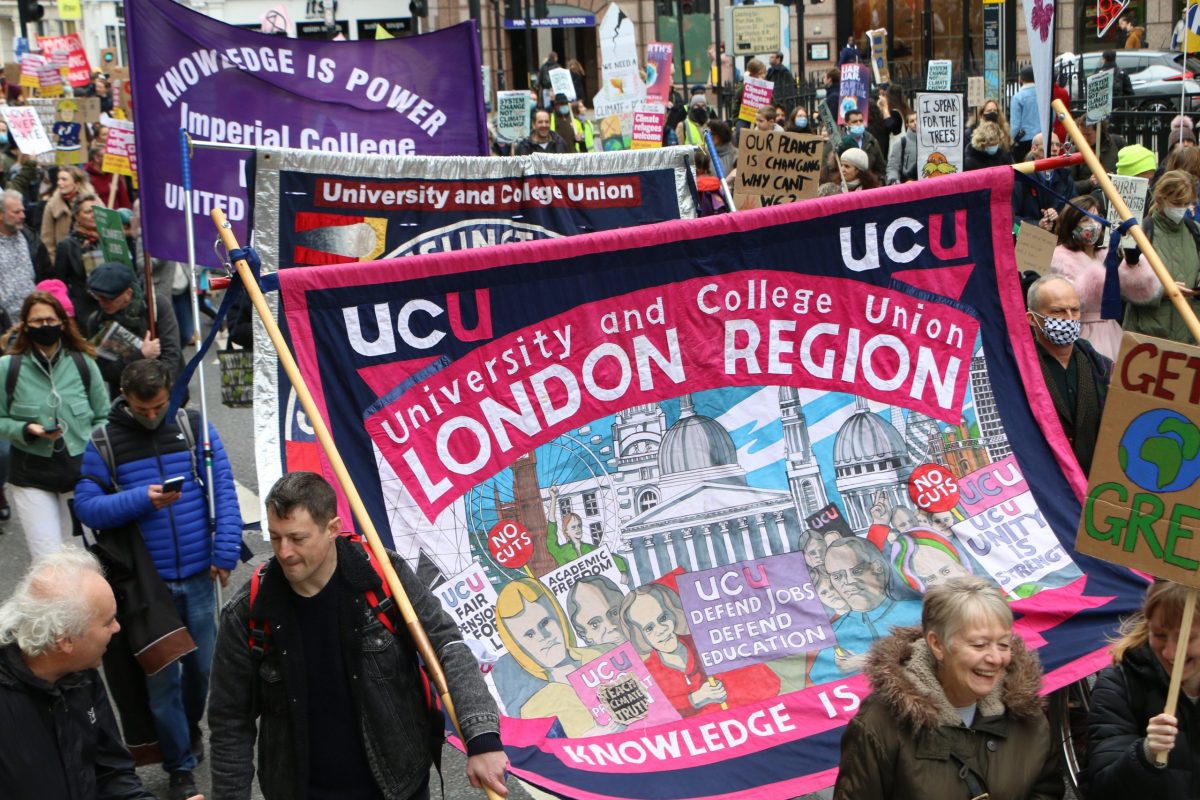
Six motions in support of Palestine sailed through without much opposition, showing that the union’s members stand in solidarity with the people of Gaza. These were mostly about defending freedom of speech on campuses, and divesting in arms companies linked to the Israeli regime.
In a speech supporting one of the motions, I pointed to the need to link up the student encampments’ demands around divestment with last year’s motion to kick capitalism out of higher education.
This could inspire a campaign around staff-and-student control over where universities’ money is invested – sweeping not just arms companies off campus, but marketisation in general.
That is why it is so important that we build revolutionary leadership in the labour movement, to harness the potential of the working class and youth. We have the strength to tackle these problems. Let’s use it!
Deliveroo Riders fight rotten pay deal
Rahul Mehta, Wood Green RCP
Deliveroo and the GMB union recently agreed on a new pay deal for delivery riders. While claiming a 15% pay rise, however, the deal falls short of the demands of the strike movement.
A motorcade protest outside the Deliveroo AGM the following day showed management that riders won’t settle for shoddy pay deals.
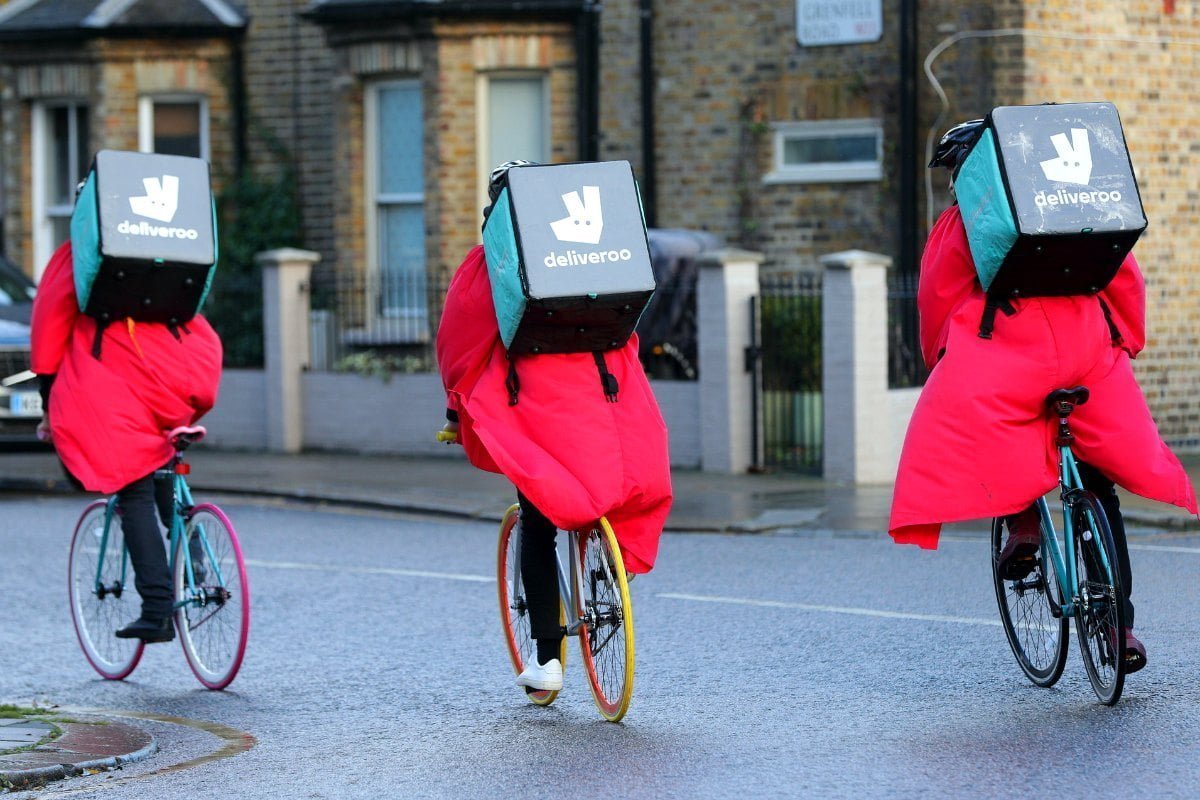
GMB have agreed on a ‘pay floor’ amount: a rate for the time when a rider is delivering food. The offer is nominally the National Living Wage – £12 per hour plus expenses.
The union is hailing this as a monumental deal, apparently affecting half-a-million orders across the country. Yet many riders see flaws in the deal.
The agreed rate will not account for traffic, the time spent waiting for the customer, nor extreme weather conditions.
As one rider put it: “This deal is a trap. The waiting time at restaurants to collect the order and the time from the moment that you accepted the trip to picking up the order won’t count.”
The GMB deal will maintain the precarious work model that awarded Deliveroo shareholders £300m last year.
As one rider pointed out, the bosses “want us to be enslaved in the hourly-work mentality as self-employed, without any responsibilities towards the health and safety risks, plus the financial cost of working as food delivery, especially in London.”
Delivery riders are left fighting over crumbs, causing some to point their anger at illegal immigrant workers and students. As one rider correctly said, however:
“Everyone is going through hard times, so let’s just talk about the real problem, which is those mafia companies who are exploiting us because they have the power to do so…
“Let’s just stick together and work together to make the odds in our favour. Trust me, unity is the only way we can win this war.”
Previous strike action in February brought Deliveroo to the table, proving that militancy pays. But the demands of the strike movement are clear: £5 base-rate per job, and £2 per mile.
The RCP stands in solidarity with riders at Deliveroo, JustEat, UberEats, and the rest of these parasitic companies. End precarious work and the capitalist system that creates it!
Coffee shop troubles: One worker’s experiences of the police
A frustrated employee in Scotland
Sitting in the coffee shop’s office at work, on yet another phone call with the police, I thought back to earlier in the day, when I had seen around ten officers at the Palestine demo outside Parliament surrounding an Israeli flag.
Clearly, I thought, Police Scotland have plenty of time on their hands, if they can dedicate their officers to the task of valiantly defending a piece of fabric. At work, however, I have seen a different story.
Over the past month, my colleagues and I have seen a spike in violence, theft, drunkenness and threats. We have been sworn at, physically threatened, had our tips stolen, and much more.
Each time these incidents occur, the police are called. At no time have they actually turned up, however. And rarely do local officers even phone us back.
When this was brought to the attention of our company, they suggested that we bribe the officers with a free coffee! The company refused to part ways with money for a security guard to keep us safe.
Finally, we took the decision to shut the store every time an incident occurred. Unsurprisingly, this cut in profits did the trick! Within a week of our three-hours-early close, we were offered a security officer.
This past month has taught us two things. Firstly, that the police have plenty of time to harass protestors, but no time to protect workers. They clearly act in the interest of the establishment, and not the masses.
Secondly, the fat-cats in charge of my workplace do not care about the safety of their workers – only in their profits. We forced their hand by closing for a few hours. So imagine what we could achieve if we organised and closed the store for weeks!

